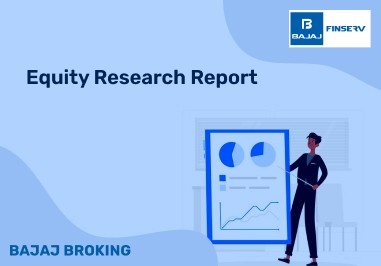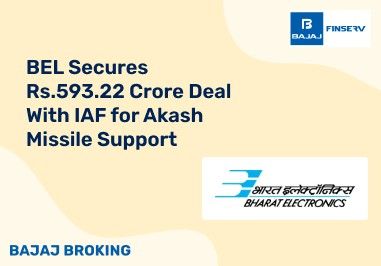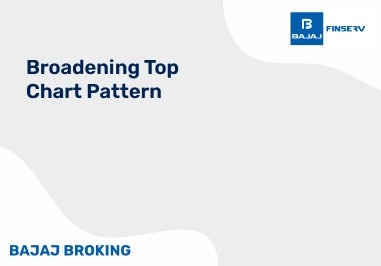Nifty ETFs or Exchange-Traded Funds are quite in vogue as extremely cost-effective diversified investments, tracking the Nifty 50 index. If you look for an investment in the Indian equity market, one of the most efficient ways is to get exposure to the top 50 companies in the country via Nifty ETF. Here in this blog, we will try to discuss what Nifty ETF is, how it works, its features, benefits, risks, and more importantly, how one can invest in it.
What is Nifty ETF?
Nifty ETF is an exchange traded fund which replicates the performance of the Nifty 50, that tracks 50 largest and most liquid companies on the National Stock Exchange of India. This product gives the investor broad exposure to the Indian equity market without actually purchasing each and every stock available in the market.
Nifty ETFs are available for trading on a stock exchange, like ordinary shares. It is very accessible to the retail investors. A Nifty ETF's value increases or decreases corresponding to a movement in the Nifty 50 index. With the opening up of a trading account, one can buy or sell an ETF at a particular time during the trading day, more flexibly as compared to buying mutual funds only at the end of a trading day.
It invests money pooled from various investors buying shares of the 50 companies that comprise the Nifty 50 index. Thus, an Nifty ETF provides diversified investment with a single transaction process. Now that we know what is Nifty ETF, let’s move on to how it works.
How Does Nifty ETF Work?
Nifty ETFs operate on the pattern of tracking the performance of the Nifty 50 index. The fund manager of the ETF ensures the replication of the portfolio that follows the composition of the index as closely as possible. The idea is to give returns in line with the performance of the Nifty 50 index.
When you purchase a Nifty ETF, it is practically the same as buying an underlying fraction of the entire portfolio of Nifty 50 ETF which comprises the entire 50 companies within the Nifty 50 index. ETF value does change throughout the trading day due to how individual stock performances in the index vary along with general market circumstances.
Unlike actively managed mutual funds, Nifty ETFs are passively managed; that is, the fund manager does not pick and choose stocks on the basis of their outlook in the market. Instead, the ETF will mirror the composition of the index exactly. It thus gives broad exposure to the market without having to oversee it constantly and make changes accordingly.
The main advantage of Nifty ETFs over investment in individual stocks is the instant diversification it offers. Instead of buying and holding multiple shares, the investor buys a single unit of the ETF, representing all 50 companies within the Nifty 50 index. The other advantage with ETFs is that it is traded on an exchange, meaning it provides liquidity. In other words, investors can easily enter and exit a position.
Additional Read: Differences Between Nifty and Sensex
Key Features of Nifty ETFs
1. Diversification: The major characteristic of Nifty ETF is that they enable investors to have exposures with the top 50 Indian companies using a single investment.
2. Low Expenses: Nifty ETFs have relatively lower expense ratios than actively managed mutual funds since they are passively managed.
3. Liquidity: Nifty ETFs can be bought and sold in the trading day in any trading account. It is liquid and easy to trade.
4. Transparency: Nifty ETFs are public and the investor knows what stock he is investing in since the Nifty 50 index is composed of this.
5. No Minimum Investment: Other mutual funds require minimum investment, however, with Nifty ETF, one can invest with as low as one unit.
6. Tax efficiency: Nifty ETF involves lesser transactions as against an actively managed fund; generally, it would prove tax-efficient with less capital gain tax.
7. Market Return Since it is indexed with Nifty 50, it will hold the same performance; so, the return in the long run would accrue similarly to market return.
8. Liquidity: Nifty ETFs are traded on the exchanges hence available to individual and institutional investors also.
Advantages of Investing in Nifty ETFs
Through the investment in a Nifty ETF, you are, so to speak, exposed to all 50 companies making up the Nifty 50 index, thus investing across various sectors and the negative impact of any one particular stock on your portfolio would be minimized.
Nifty ETFs have lower management fees in comparison to actively managed mutual funds, and also the chance of avoiding high expense ratios associated with a few mutual funds is also possible since they are traded like stocks. Nifty ETFs are traded on the stock exchange, hence giving liquidity to the investor. They can be sold or bought at any point of time during the market hours provided to the investor.
How to Invest in Nifty ETFs
Investing in Nifty ETFs is a simple process that can be broken down into a few steps:
Opening a Demat Account
Opening a Demat account and a trading account is the first step towards investing in Nifty ETFs. Just like stocks, holding and trading of ETFs require a Demat and a trading account.
Choosing the Right Nifty ETF
The Nifty ETFs are available in different avatars, each housed differently. Compare expense ratios with desired returns and past performance to decide which one to choose.
Buying and selling Nifty ETFs
Once you've selected the right ETF, you can place buy or sell orders through your trading account. The transactions are executed at real-time market prices, offering flexibility in trading.
Comparison with Other Investment Options
Feature
| Nifty ETFs
| Mutual Funds
| Direct Equity Investments
|
Management Style
| Passive
| Active/Passive
| Active
|
Costs
| Low (Passive management, low fees)
| Medium to High (depends on fund)
| No management fees, but brokerage costs
|
Liquidity
| High (traded on exchanges)
| Medium (buy/sell once per day)
| High (traded on exchanges)
|
Diversification
| High (exposure to 50 companies)
| Depends on the fund (can be sectoral too)
| Low (dependent on individual stocks)
|
Tax Efficiency
| High
| Medium
| Medium
|
Market Exposure
| Nifty 50
| Varies by fund
| Depends on chosen stocks
|
Nifty ETFs v/s Mutual Funds
Both Nifty ETFs and mutual funds provide diversification. However, the ETFs are generally cheaper in terms of cost and allow real-time liquidity since it can be traded throughout the day, whereas mutual funds allow a transaction only at the end of the trading day.
Nifty ETF vs. Direct Equity Investment
This investment in equity directly involves the research and selection of individual stocks, which is cumbersome and riskier. However, Nifty ETFs will automatically give you diversity across the top 50 companies and reduce the risks associated with a single stock.
Risks Associated with Nifty ETFs
Market Risk
Nifty ETFs, like any other investment that is stock market linked, are subject to market risk. This means if the Nifty 50 index falls, then the value of your ETF falls with it.
Tracking Error
The times when the Nifty ETFs might not be precise replicas of the Nifty 50 index performance would be referred to as a tracking error. It is possible because of reasons like management fees and transaction time. Liquidity Risk Generally, Nifty ETFs are liquid, but there would still be occasions where low trading volumes caused problems in terms of liquidity, particularly for the smaller ones. The purchase or sale of units at a desired price might then be even more challenging.
Additional Read: What is Demat Account: Importance, Features and Types
Conclusion
Investing in Nifty ETFs is an excellent way through which one can have direct exposure to India's premier companies through a diversified and cost-effective and liquid option. With the added benefit of real-time trading at low fees and exposure to the Nifty 50 index, Nifty ETFs have become an option for both retail and institutional investors.
However, being an investment, there exists a risk associated with this investment, and the better understanding of the same may be necessary before investment is made. Whether you are an investor building a diversified portfolio over the long term or a short-term trader looking for liquidity and flexibility, Nifty ETFs are a worthwhile addition to your investment strategy.
Disclaimer: Investments in the securities market are subject to market risk, read all related documents carefully before investing.
This content is for educational purposes only. Securities quoted are exemplary and not recommendatory.
For All Disclaimers Click Here: https://bit.ly/3Tcsfuc














